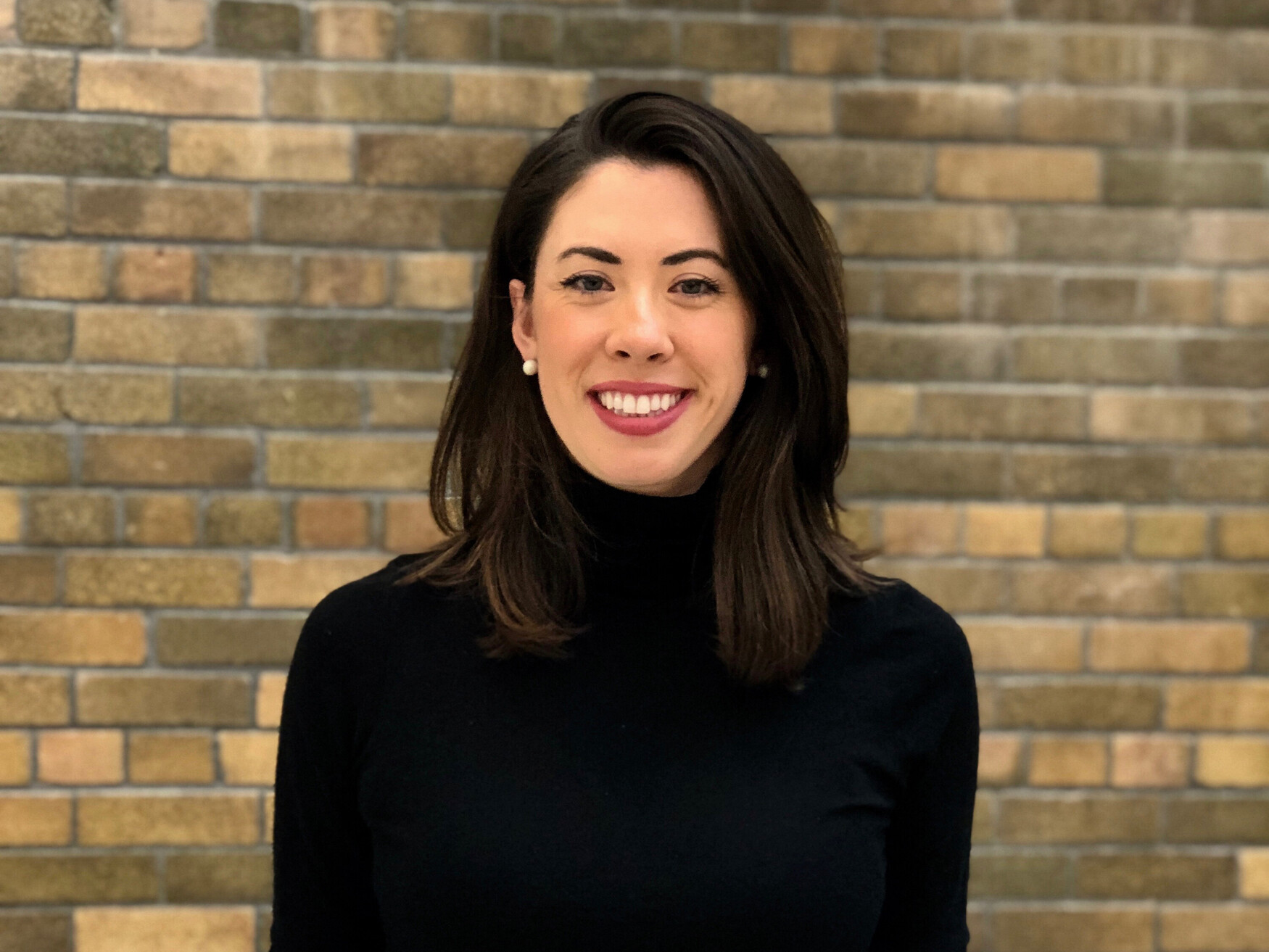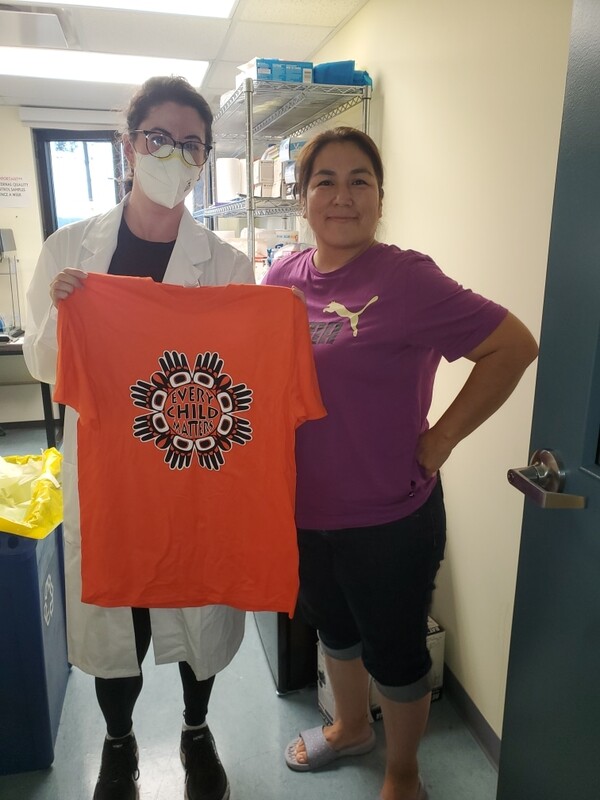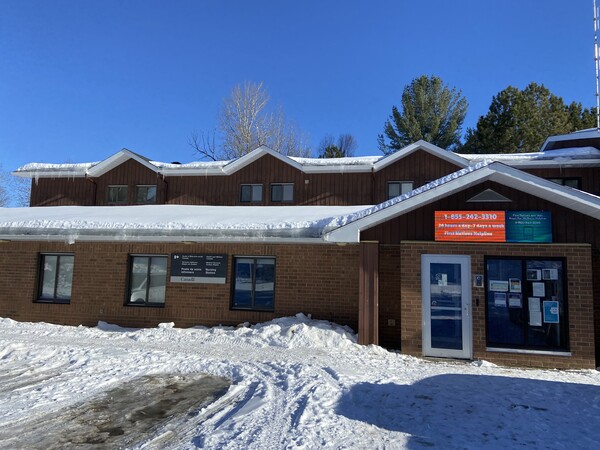Mobile Menu
- Education
- Faculty
- Research
- News & Events
- Divisions
- Equity, Diversity & Inclusion
- About Us

Dr. Kelsey McLaughlin has been awarded the CCS/Pfizer/CHF Alliance Fellowship Award in First Nations, Inuit and Métis Communities Experiencing Heart Function Inequities for her work aiming to deliver community-informed, culturally sensitive health information to pregnant people regarding cardiovascular disease prevention and management during pregnancy and beyond.
Dr. McLaughlin, an assistant professor in our Department, began developing the Healthy Pregnant Hearts project during the pandemic while working with the rural First Nations community Algonquins of Barrière. Though her work initially centred on integrating community-based COVID testing with the Public Health Agency of Canada and helping with community-based vaccine clinics, Dr. McLaughlin gradually became involved in other health and wellness initiatives.
In 2020, a Community Needs Assessment of the Algonquins of Barrière Lake community identified cardiovascular disease as a significant issue in the community, with pregnant people being a particularly vulnerable population.

“Healthy Pregnant Hearts was developed to deliver culturally informed information specifically around cardiovascular disease management and prevention to pregnant people,” Dr. McLaughlin says.
“Complications during pregnancy, like diabetes or hypertension, can significantly impact short- and long-term maternal health. We see this project as investing in pregnant people to improve maternal health, as well as the health of families and the community.”
Dr. McLaughlin launched the Healthy Pregnant Hearts project in close collaboration with Nicole Ratt, Health Director of the Kitiganik Health and Wellness Centre in the Algonquins of Barrière Lake community.
The first phase of Healthy Pregnant Hearts was to facilitate dialogue within the Algonquins of Barrière Lake community to identify current gaps in cardiovascular health needs of pregnant community members. A community feast was held to learn more about the community’s needs directly from community members. From there, Dr. McLaughlin and Ms. Ratt are developing and facilitating a monthly seminar series. Based on topics identified by the community, they will recruit local and national experts on maternal and cardiovascular health to participate. Information regarding the management of diabetes and hypertension in pregnancy are the most requested topics to date.
“The seminar series is being facilitated and guided by Indigenous health providers, and will include a combination of traditional healing and Western medicine,” Dr. McLaughlin explains.
“Community members are eager to receive health information that is tailored for the community, providing a level of safety and trust that is unfortunately not always available, especially to pregnant people,” she added.

Although her work in the Algonquins of Barrière Lake community has extended far beyond the initial COVID-19 response, Dr. McLaughlin said the pandemic exposed larger healthcare issues in the community.
“The pandemic further revealed the inequities that exist in healthcare and health services for Indigenous people in Canada,” she says.
“There are a number of unique barriers that exist for this community. One is location — the community is considered semi-remote, and it’s 90 minutes to the nearest hospital. Another important barrier is language. Algonquin is the first language of this community, with 100 per cent fluency. One of the main goals of this project is to deliver critical health information in the language of choice. Nicole and other community members will be involved in the translation of knowledge. A third barrier is racism. Community members commonly report experiencing racism at hospitals or clinics, which is a deterrent to accessing and receiving health services.”
Regarding the Healthy Pregnant Hearts project, Ms. Ratt said: “We believe in self-determination of health. The foundation of our work is the motto ‘Nothing For Us, Without Us.’ We want to provide community members with information that is useful to them and makes them healthier. We believe this project will make families and the community healthier. Knowledge is power for our community and for our young moms. Our community is standing up and providing input. That’s the only way we can advance. I am the daughter of a Survivor. There have been a lot of barriers to allowing us make informed decisions. Certain services have not been provided because of who we are. That’s what Truth and Reconciliation is about.”
“I’ve been fortunate to grow a relationship with Nicole and the Algonquins of Barrière Lake community that is built on respect, trust, and collaboration,” Dr. McLaughlin added. “We have developed a foundation to continue addressing the health needs of this community.”
Receiving this award — which is given by the Canadian Cardiovascular Society, Pfizer, and the Canadian Heart Function Alliance — was an honour for Dr. McLaughlin, especially since it came so soon after her appointment as an assistant professor in our Department and a staff scientist at Mount Sinai Hospital in 2023.
“I was absolutely thrilled to receive this fellowship award,” she said. “It’s an honour to receive any award, but this award is especially meaningful as it focuses on advancing Indigenous maternal health. To receive it in my first year is very encouraging, it allows me to start establishing an impactful research program early in my career.”
